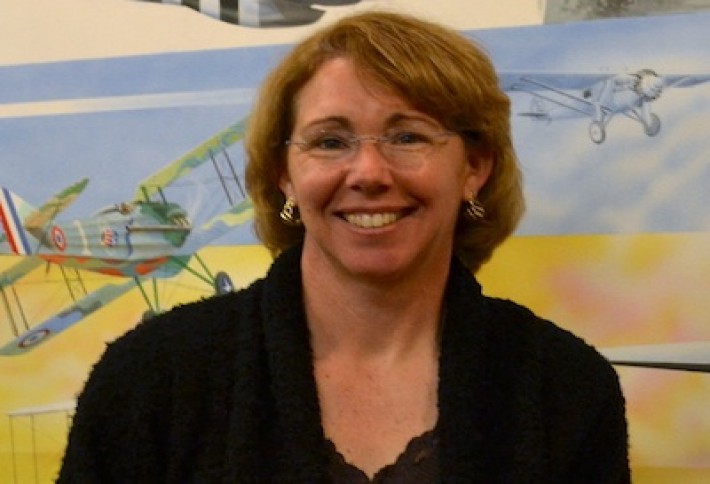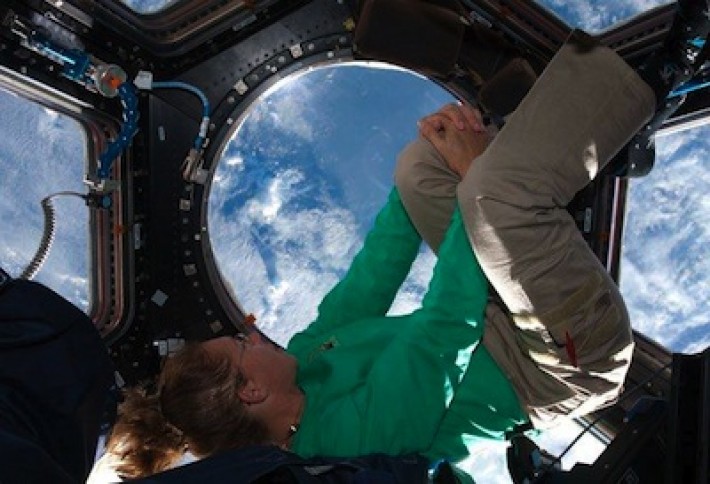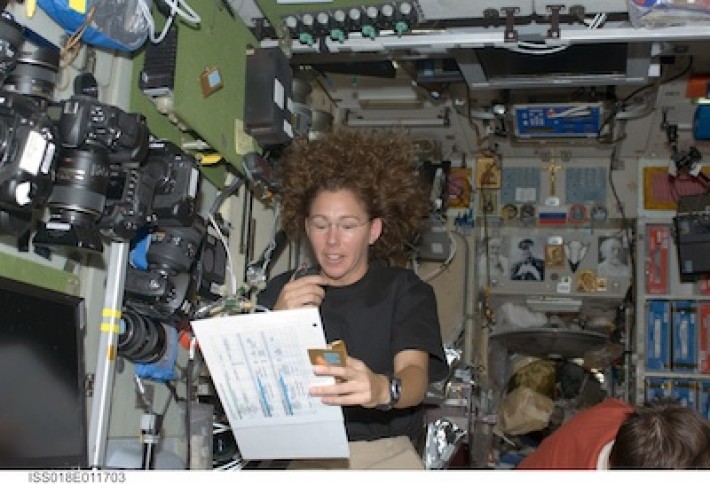Astronaut Turned Society Head

When the American Institute of Aeronautics and Astronautics needed a new executive director, they looked to someone with know-how and leadership: an astronaut.(We would have looked to the cast of Space Jam. This is why we're not in charge.)
 Sandra Magnus, a veteran of three space flights-- includinga four-month stay on the International Space Station--was hired a few months ago to lead the Reston, Va.-based organization (35,000 individual members, 100 corporate members). Moving from Houston, she plans to take the organization back to basics by making sure current and future members know its value. The society brings them together to discuss the latest research and how it can be applied to the public and private sectors. Sandra also has an interest in STEM and partnering with like-minded organizations.
Sandra Magnus, a veteran of three space flights-- includinga four-month stay on the International Space Station--was hired a few months ago to lead the Reston, Va.-based organization (35,000 individual members, 100 corporate members). Moving from Houston, she plans to take the organization back to basics by making sure current and future members know its value. The society brings them together to discuss the latest research and how it can be applied to the public and private sectors. Sandra also has an interest in STEM and partnering with like-minded organizations.
Sandra had dreams of becoming an astronaut since middle school and ended up working at NASA for the last 16 years, most recently as astronaut office deputy chief. She started in technical jobs, including mission control. But she was really there to fly, so she trained to live on the International Space Station. Living there with two other astronauts, their mission was to outfit the station for a larger crew in late 2008. That involved putting in a second toilet, exercise equipment, and a water regeneration machine. (There can't be giant steps for mankind without small plumbing work for everyone.)
 Sandra remembers seeing the first horizon out of the space station windows and realizing the thinness of the earth's atmosphere. Some other observations from 200-250 miles high: Traveling at 17,500 miles per hour, the crew experiences a sunset and a sunrise every 45 minutes(same thing happens to us after too many Red Bulls);cities look like black smudges during the day; the Carribbean looks like an artist's palette of brilliant blues; and it's really hard to cook without gravity. She says space exploration will become less of a government mission and more available to the public as the private sector gets interested in low earth orbit. The aerospace industry will continue to innovate, bringing more things like GPS devices and UV coating on sunglasses to the general public.
Sandra remembers seeing the first horizon out of the space station windows and realizing the thinness of the earth's atmosphere. Some other observations from 200-250 miles high: Traveling at 17,500 miles per hour, the crew experiences a sunset and a sunrise every 45 minutes(same thing happens to us after too many Red Bulls);cities look like black smudges during the day; the Carribbean looks like an artist's palette of brilliant blues; and it's really hard to cook without gravity. She says space exploration will become less of a government mission and more available to the public as the private sector gets interested in low earth orbit. The aerospace industry will continue to innovate, bringing more things like GPS devices and UV coating on sunglasses to the general public.

